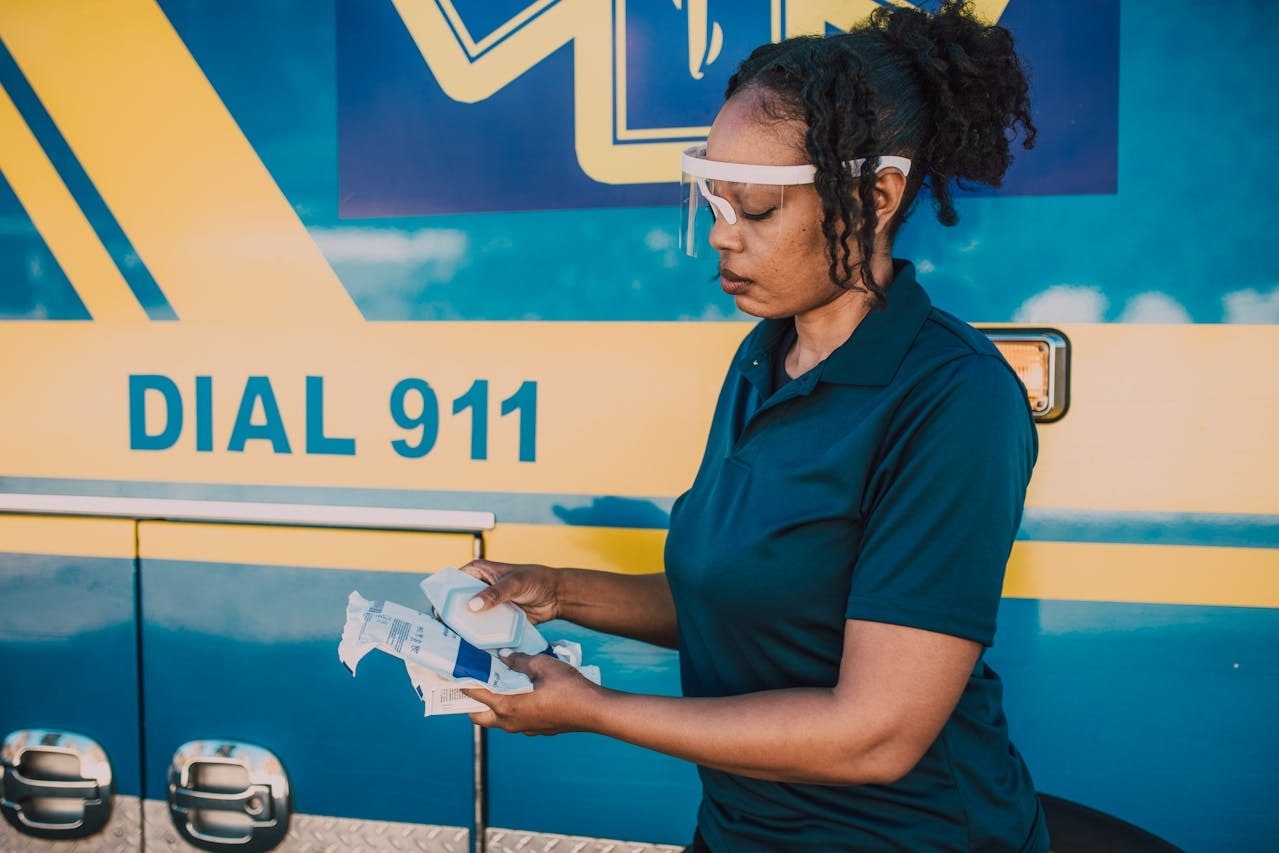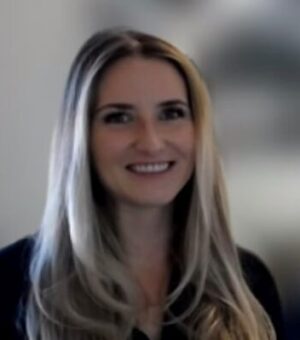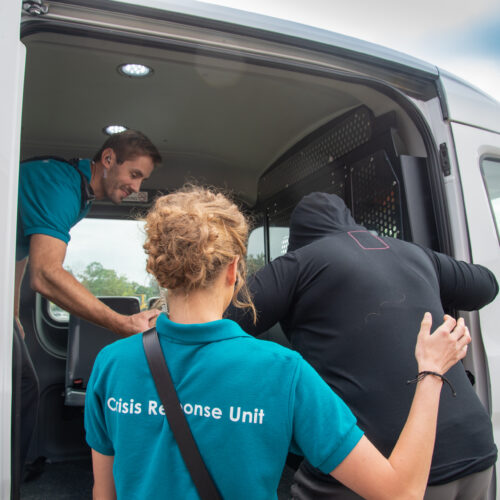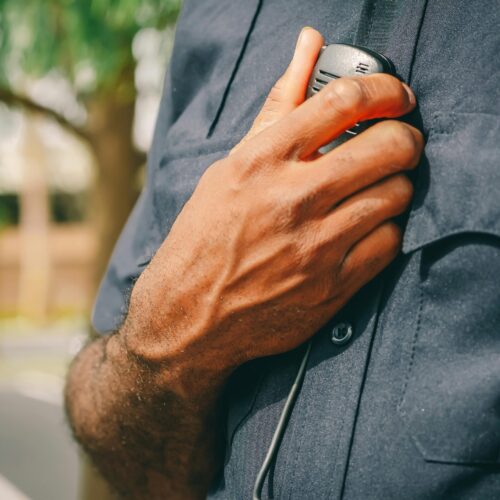
Apply Now: Great Lakes Community Responder Program Learning Community
********This application deadline has passed********
To support the development of community responder programs in the Great Lakes region (Illinois, Indiana, Michigan, Minnesota, Ohio, and Wisconsin), The Council of State Governments (CSG) Justice Center is hosting a six-month learning community beginning in April 2024. This learning community is intended to help leaders explore pathways for diverting community members in crisis from jails and emergency rooms and implementing or significantly enhancing their community’s crisis system.
Applicants should be in the exploration or planning stage of building a community responder program and must include a team of four to six people representing the decision-makers necessary to implement community response. (See below for more details.)
The CSG Justice Center is also hosting an information session on March 11 at 4:00 p.m. ET where interested applicants can learn more about the learning community and ask questions.
If you would like to attend the information session or have any questions ahead of time, please contact Mari Bayer at mbayer@csg.org.
What the Great Lakes Learning Community will entail.
The Great Lakes Learning Community will include six monthly virtual group sessions, as well as virtual one-on-one training and technical assistance sessions as needed, beginning in April 2024, and ending in September 2024.
The dates and times for each group session are:
- April 10, at 2:00 p.m. ET
- May 8, at 2:00 p.m. ET
- June 12, at 2:00 p.m.
- July 10, at 2:00 p.m. ET
- August 14, at 2:00 p.m. ET
- September 11, at 2:00 p.m. ET
The virtual group sessions will last 90 minutes each; and when needed, the virtual one-on-one sessions will last up to 60 minutes each. Group sessions will cover different topics and include guest speakers, information, resources, and peer-to-peer learning and support. One-on-one sessions will focus on supporting the specific needs of each team.
Potential topics for each group session can include the following:
- Needs assessments and program planning
- Workgroup /partnership development and functions
- Dispatch and service connections
- Marketing, visibility, and gaining community buy-in
- Data use and evaluation readiness
- Funding and legislation
What you will gain by participating?
Each Great Lakes Learning Community session is designed to help teams implement emerging practices and document the process and outcomes of their efforts for the broader field. Teams will benefit from (1) peer-to-peer support, (2) guidance from national experts, and (3) practical guidance and troubleshooting from a nationally recognized technical assistance provider. Specifically, by the end of The Great Lakes Learning Community, each team will have
- Learned how to conduct a community and system needs assessment and built an operational work plan using the results;
- Identified which community leaders and officials need to be engaged and created a plan for engaging them;
- Explored various funding, dispatch, and response models and determined which could best serve their community;
- Built a logic model for the chosen community responder program and a workgroup to finalize and begin implementing the plan;
- Identified a core group of peer community leaders to support and be supported by while planning and implementing a community responder program;
- Practiced pitching their program to a foundation and federal funding expert and received critical feedback; and
- Collaborated on and co-authored templates and guides that other communities can use nationwide.
Who should apply?
All community leaders (from nonprofit agencies, cities, counties, and neighborhoods) in the Great Lakes Region (Illinois, Indiana, Michigan, Minnesota, Ohio, and Wisconsin) that are in the exploration or planning stage of community responder programs are encouraged to apply. Applicants must have the desire to use alternative approaches for responding to community members in crisis due to poverty, substance use, and mental health. For the purposes of this learning community, a community in its exploration phase is considering or examining ways to expand responses to calls for service for community members in crisis or distress. A community in its planning phase has decided that a community responder program is appropriate to meet its needs and is taking steps to eventually implement it. If you need help determining which stage your community is in, please take our Expanding First Response Assessment Tool.
Each community must apply as a team of four to six people representing the decision-makers necessary to implement community response. All team members should be able to attend
and participate in every group session. Because each team’s model will vary, teams are expected to look differently across applications. However, each team must include a representative from a traditional first response (fire, law enforcement, or emergency medical services [EMS]) and a representative of the organization or agency implementing the community response. Understanding each team member will represent multiple identities or wear numerous hats, applicants are also encouraged to include at least one person or family member with lived experience in homelessness, substance use, mental health, or incarceration and/or a 911 dispatch representative on the team. At most, six team members may actively participate in each session; additional team members may join to listen in, however.
Examples of team members include:
- A crisis system, hospital, or behavioral health representative
- A first responder representative (from law enforcement, fire, or EMS)
- A 911/emergency call center representative
- A community champion or advocate
- A representative from community-based programs such as harm reduction services, peer support, or shelter/housing
- A city or county public health staff member
- A city or county office of violence prevention (or similar) representative
- An attorney’s office representative
- A policymaker or elected official
How teams will be selected.
The Great Lakes Learning Community will include up to six teams. Applicants should complete the application by March 17, 2024, to be considered. In each application, leaders should outline their partners, describe the program they are exploring or planning to implement, and note any existing resources they have for the intervention to work well (such as funding streams and complementary community services). Staff from the CSG Justice Center may schedule individual 30-minute meetings with applicants to learn more about each team to ensure the Great Lakes Learning Community is a good fit for them and to hear what supports and resources would be most beneficial to them. After teams are finalized, CSG Justice Center staff will send calendar invitations, access instructions, and supporting materials for the sessions.
Photo by RDNE Stock project via Pexels
Project Contact

This May, the state of Washington passed legislation supporting the expansion of alternative response teams (sometimes called community…
Read MoreThe CSG Justice Center has partnered with the Pennsylvania Commission on Crime and Delinquency and CIT International to…
Read More Developing a Common Definition for Community Responder Programs
Developing a Common Definition for Community Responder Programs
This May, the state of Washington passed legislation supporting the expansion of alternative response teams (sometimes called community responders) as a public safety service.
Read More CSG Justice Center Launches Nation’s 1st Statewide Crisis Intervention Teams (CIT) Technical Assistance Center in Pennsylvania
CSG Justice Center Launches Nation’s 1st Statewide Crisis Intervention Teams (CIT) Technical Assistance Center in Pennsylvania
The CSG Justice Center has partnered with the Pennsylvania Commission on Crime and Delinquency and CIT International to launch the first statewide Technical Assistance (TA) Center in the country.
Read More









